By Giulia Pines, author of Finding Your Feet in Berlin: A Guide to Making a Home in the Hauptstadt. Her lively book gives the answers to every practical question regarding: history, official stuff, finding a place to live, learning German and other expat resources (yes, including überlin!). Scroll down to find out what you should know now that you’re *really* a Berliner.
So, you say you’ve been here for a while, now? You’ve got a job, an apartment and a Späti owner who always says hi to you? You’ve survived a whole winter (or at least a few months of it) and lived to tell the tale? You’ve already been practically run over by a speeding cyclist and yelled at by a cab driver (only to curse back in return)? You’ve memorised the U-Bahn and don’t actually need to carry around a map anymore? Well, congratulations: you’ve made it… halfway.
That’s because, luckily or unluckily for you, becoming a local is no step-by-step process. Learning to know and love and conquer a city is an experience for which there is no rulebook; a mind-boggling journey of twists and turns, of failing and falling and getting back up again, of trying to make sense of the incomprehensible. Only you will know when you’re finally at home here, and only you will sense when calling yourself a local stops sounding like wishful thinking and begins to ring true.
In the meantime, though, here are some tips to help you navigate the wild, roiling waves of the city, in those first few months when you think you might drown in the wonderfulness of it all—that is, until something fundamental snaps you back to the surface. When those little glitches fail to rile you because you can anticipate them before they happen, that’s when you’ll know you’re a Berliner.
Now That You’re a Berliner, You’ll Know…
… To cross on the red in the right circumstances.
Sure, you’ve been told it’s the greatest sin in Germany – that whatever you do, you should never ever cross the street on a red pedestrian signal (Ampelmännchen or “little traffic light man” in the former east, as the lights are actually shaped into little men walking or standing still, now a beloved symbol of the city). Indeed, Germans are notorious for following this particular rule even when no one is watching (it could be 3am with not a car in sight, and the only other person at the crosswalk will wait for green). You may have heard stories from friends who were yelled at by old cranks when they crossed the road before the light turned green, or given absolutely penetrating looks by parents standing patiently at the curb with young children. But really, 99 times out of 100, the worst that can happen to you is just that: a few nasty looks, a few raised voices, a couple of people who seem to think they need to give you an abbreviated etiquette lesson. By the 100th time you may actually run into a policeman, but the worst he’ll probably do is scold you lightly and tell you to be on your way.
This is really one of those rules that you can break, once you feel comfortable doing so. Sure, it might be best not to exercise your human right to traverse the crosswalk freely when there are young children around if you fear the wrath of their parents, but you can always reason it away: most parents who are adamantly against crossing on red argue that it sets a bad example for their children. But really, blindly following the red or the green man sets a bad example as well, and can be downright dangerous if a car is speeding or goes through a red light after you’ve taken your first steps into the crosswalk. It is a far, far better thing to teach children to observe what’s going on around them, assess the situation, and then cross when all signs point to it being safe.
Of course, as with many rules that are meant to be broken, this one is also occasionally meant to be followed, and for good reason. Besides being yelled at by senior citizens, there’s nothing more embarrassing than having to jump out of the way to dodge a honking, oncoming car just after you blithely, ever so nonchalantly waltzed into the street on red.

… Not to begin every conversation with “Do you speak English?” when what you really mean is, “I’m sorry I don’t speak German.”
You may have felt it before: that slight twinge of embarrassment or shame when you’re in a foreign country, have to communicate with someone, and don’t yet know whether he or she will be able to communicate with you. The only thing to do is begin with “Do you speak English?” It’s a slippery, precarious slope: only a few more of those charming conversation starters and you’ll be on your way towards becoming one of those tourists.

Luckily, you live in a city where people are very likely to speak English—or at least enough English to get you what you want. But why not start by assuming this? Start by assuming that they are better in English than you probably are in German, and give them the benefit of the doubt. A perfect opening phrase to use, which will get you the same results as the dreaded “do you speak English?” but with far more respect implied, is the more polite, subtle, probing, “Can we speak English?” This does double duty, not only assuming that your speaking partner is already bilingual, but also handing over the proverbial reins: of course, it is implied that the conversation will continue in English, but it also suggests that the choice rests not with you, but with the person you are addressing.
What’s more, when you get to the point where you probably can speak enough German to conduct the conversation in that language, but perhaps do not feel quite as confident as you should, you can ask the question in German instead (“Können wir Englisch sprechen?”) and bask in the well-earned satisfaction of having your partner reply, “Aber Dein Deutsch ist viel besser als mein Englisch!” (“Your German is far better than my English!”)
… Not to make blanket statements about “Wessis” versus “Ossis” unless you really know what you’re talking about (in which case you’re probably an Ossi, no wait, a Wessi).
Not long ago, Germany was two countries; this you know for sure. What you might not know, however, is that it kind of, sort of still is… at least in the minds of some Germans.
You may not really get it until you get to Berlin, and even then it can be somewhat hard to believe, but each year some newspaper (or at least your first German teacher, eager to make an impression on you) reports that an astonishingly high percentage of East Germans wish the Berlin Wall were still up. This may sound insane considering what the Ossis went through under ruthless dictatorship (by the way, don’t call it that in front of an Ossi unless you know them well), but it makes perfect sense considering what they’ve been through since. Instead of feeling like they’d reunited with a long last friend, the other half of their homeland, many Ossis (East Germans, taken from Ost for East) believe that their culture, their beliefs, and the entire history of their short-lived nation were taken over by a country that had become entirely foreign to them. Going back to a reunited Germany meant they were now in the world of the Wessi (from the German word West).
In fact, when the Wall fell, East Germans had so much catching up to do, it was almost inevitable they would fall behind. And fall behind they did, as statistics show that East German cities and towns continue to shrink, mostly as the result of the exact brain-drain the Soviets feared when they put up a wall in the first place: young people with means, education, or any small amount of talent still tend to leave East Germany for better prospects in the West. What they find when they get there, however, is a society that seems to be rigged against them, with very few former citizens of the DDR winning promotions and career advancements, let alone reaching the tops of their fields. (One notable exception, it should be said, is Chancellor Angela Merkel, although there are even those who would attribute her every misstep to her East German background.) A recent article in translation on Spiegel Online referred to this as “a different type of glass ceiling,” observing that, even a couple of decades after the Wall has come down, “at times, it feels as if East and West Germans are becoming more and more estranged.”

The only way to really understand what it’s like to be an Ossi is to talk to some former citizens of East Germany, and when you do, make no assumptions or authoritative statements, because you’ll realise pretty quickly how little you know. Many older Ossis still chuckle at what they went through and what they had to do to survive, while some still insist, as their desire to rebuild the Berlin Wall might suggest, that things were better back then. There’s no way to go back in time and find out what it was really like, and the number of people with vivid memories of East Germany will continue to dwindle over the next few decades. Honour their experiences by listening to them and accepting that, in the newly reunited German Republic, everything is not as it seems.
… To leave all those comments about Schwaben to the Germans.
Even if you’ve only been here for a week, you’ve probably already sensed that there’s a debate about gentrification raging right in your neighbourhood. That’s because, after years of seemingly paying a pittance for a palace, Berliners are starting to suffer from a drastic rise in rents for which they are probably, at some point, going to blame you. Yes, whether it’s fair or not, as a non-German new Berliner, you will likely be faced with the wrath of people who have been here for longer, either directly or indirectly. And it’s really not fun. Complaints about gentrification in which you become the culprit are a double-edged sword: you’re basically being told, in one fell swoop, that not only was the city better before you got here, it actually got worse because you decided to come. Whether you ignore these comments or feel terribly hurt by them, one thing is bound to make you feel better: the Schwaben have it worse.
Who are the Schwaben, you might ask? Some little-known tribe the Romans vanquished in the year 52 BC, on their way to tussle with the Gauls? Some 1970’s electronic band that came seeking fame and fortune and was summarily kicked out of the city because Berliners weren’t ready for techno yet? No, the Schwaben (Swabians) are alive and well, and they’ve taken over Berlin, as anyone who isn’t one of them would have you believe. They come from a region of the same name (Swabia in English) in southwest Germany that compromises the area of Baden-Württemburg and part of Bavaria, and is known as one of the richest parts of Germany. Like Bavarians, Swabians have their own culture, history, and cuisine, along with a dialect that can seem incomprehensible—even laughable—to Germans who aren’t from there. Over the years they’ve been the butt of many jokes and the victims of many an insult from the rest of the country, but perhaps none so cruel as the accusation that they are ruining Berlin.
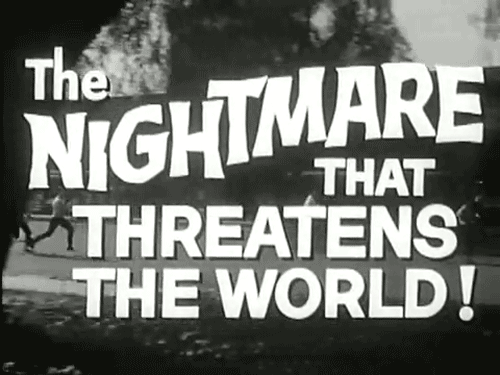
True, many of the people who rushed in to buy up the city just after the Wall fell were very wealthy Germans from the south, and some of them were from Schwaben. Even today, with Prenzlauer Berg thoroughly gentrified and Friedrichshain and Kreuzberg well on their way, you’ll still see graffiti against the Schwaben defacing many a new storefront or recently renovated building. You’ll even hear someone drunkenly railing against them on public transport every once in a while. But really, regardless of whether the rumours are true, where is most of the antagonism coming from, and who is it helping? In fact, many of the people who grumble the loudest about the so-called Swabian takeover of Berlin originally come from richer, more prosperous areas of the country, lured here by the same things that brought everyone else. The sad truth of the matter is that many of Berlin’s original Berliners left these neighbourhoods long ago; people who survived an East German dictatorship only to be felled by capitalism in the end after all. Now those who replaced them back in the early ‘90s are complaining about the scourge of international wealth sweeping the city, pushing them out. It’s playing out in every popular city in the world, and will no doubt repeat yet again. But until Berliners find some way to break the cycle, they’ll still be one word for their ire: Schwaben.
… Not to make jokes about Kennedy’s “Ich bin ein Berliner” speech.
In 1963, American President John F. Kennedy addressed thousands of West Berlin citizens in front of the Rathaus Schöneberg, on a square now called John-F-Kennedy-Platz. The aim was to send a clear message to the Soviets that Americans stood with West Germany and West Berlin, at that point still separated from the rest of the country and just as fearful as ever of a Russian takeover. The speech was a great moment for both the president and West Berliners, who needed all the encouragement they could get, and has gone down in history as one of Kennedy’s best, but most people have very little memory of what it was meant to convey. In fact, they remember one thing and one thing only: when Kennedy, in what was meant to be an expression of solidarity, uttered the immortal words “Ich bin ein Berliner,” he was actually making a horrible gaffe, as “ein Berliner” is not a person who lives in Berlin, but rather a type of jelly donut.
Comedians are still thanking him to this day. There’s no telling who reported the embarrassment first, but the media latched on to the story, turning it into something of a legend, a particularly hilarious bit of pop culture history that everyone knows, but still brings up as if they’re the first to mention it. The trouble is, John F. Kennedy’s phrase was not a mistranslation at all, and what’s more, would not have sounded particularly funny to Berliners anyway. That’s because what some Germans label a “Berliner” is actually called a “Pfannkuchen” in Berlin, and even a “Krapfen” in various other parts of the country. What’s more, due to an obscure bit of German grammar that allows the meaning of a sentence to change entirely, depending on the article used, what Kennedy said was exactly correct for someone who is not actually from Berlin, but wants to express solidarity with the Berliners. While “ich bin Berliner” literally means, “I am a person who comes from Berlin,” in the context of a presidential speech, “ich bin ein Berliner” could only be interpreted as “I am a jelly donut” by the most obtuse of Germans. What Kennedy actually meant to say was, “I am one with the people of Berlin,” so it’s a good thing that’s exactly how you would translate “ich bin ein Berliner.”

… To get out of town.
The comparison exists for a reason: Berlin is to Germany as New York is to the United States. Both seem to exist on separate dimensional planes, operating independently of their parent countries, bucking all national trends and clichés when it comes to defining them. True, Berlin is the capital of Germany, whereas New York is very happy not to be the capital of the US, but both still have a tendency to keep their distance, attracting newcomers with the lure of that otherness and then holding on tight for a lifetime. True, most Germans who move to Berlin have probably seen at least some of their country outside of the capital—at the very least, the area where they were born. It’s a good bet, however, that a percentage of Berlin’s international population hasn’t been farther than the S-Bahn can carry them.
Try to remedy this situation early on, since the longer you stay in Berlin the harder you may find it is to leave. Berlin is an island no more; no wall surrounds its western districts and there are no scowling East German guards at its borders. Getting out can be just as easy as getting on a regional train to Brandenburg, but you may want to venture even further, going as far north as Hamburg or as far south as Munich to remind yourself that there are other cities in Germany, and people who love them just as much as you love Berlin.
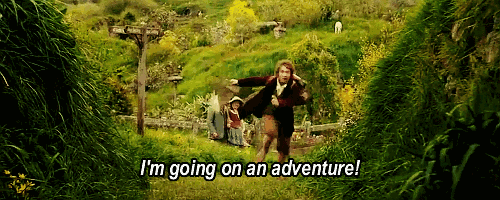
This you knew already to some extent of course, but what you may not have realised is how truly rich and varied German culture is. It’s easy enough to lump all Germans together, telling yourself there’s Berlin and then there’s… the rest of Germany. But actually, there’s Berlin and Leipzig and Munich and Hamburg and Cologne and Frankfurt and Stuttgart and Dusseldorf and Bremen and Freiburg and and and…. What’s more, since modern Germany is actually a fairly new concept and a fairly young country (about 150 years old, dating from the formation of the First German Reich in 1871, which shrank considerably after World War II), its different regions, which used to be kingdoms of their own, still display wonderful variations in terms of culture, religion, language, and shared history. When most people think of Germany, they think of beer, and Lederhosen, and women who look like milkmaids skipping through flower-covered fields surrounded by snow-capped mountains. This can all be found in Bavaria, in that part of southern Germany that shares the Alps with Austria and Switzerland. Somehow, the powers that be got together and decided it was better for Germany to have an image that involved alcoholic beverages, beautiful scenery, and blond busty women in old fashioned clothing than grey skies, dark winters, and the socio-economic inequality left behind by about forty years of dictatorship.
Go figure. Or better yet, go see what the rest of the country has to offer, and come back with an entirely new concept of what it means to be German (if you can figure it out… most of the country is still trying).
… To do your shopping well in advance of a big holiday.
If you plan on throwing a party for New Year’s Eve, you’d do best to make a list of everything you need on the 29th and go shopping on the 30th. If you have to work on the 30th or are otherwise engaged with post-Christmas celebrations, make the most of December 31st: wake up painfully early and march to your nearest grocery store. Better yet, be ready to visit five of them. December 31st isn’t just the day before a big holiday in Germany, you see, it is actually more like the day before the apocalypse. By this time you should be at home, basking in the warmth of the fire (or at least that particular feeling of smugness you get from being prepared). If you’re unlucky enough to be out in this particular post-apocalyptic frenzy, however, prepare yourself: you’ll need emotional strength as well as physical stamina to brave long lines and not just empty but dusty supermarket shelves.

Best to plan early. Or better yet, outsource the work: dig out that dusty bottle of Sekt from last year, back when you learned your lesson by throwing a part of your own, and head to someone else’s house for a Silvester celebration that is all the more enjoyable because it isn’t yours.
… To experience May Day in Kreuzberg once, and only once.
You’ve heard it before, and you’ve come to believe it through multiple trips to the Bürgeramt, Finanzamt, or Ausländerbehörde. Germans are orderly. They are very proper and orderly. They are so perfectly orderly, in fact, they tend to obey completely inane rules that would make the rest of the world’s inhabitants scratch their heads in confusion or double over in mirth (like only crossing the street when the light turns green for them, for example).
But there are a couple of days a year when Germans prove this is all for show, letting loose in a manner so uncontrolled and truly frightening, it would make the rest of the world’s inhabitants run and hide. One of these occasions is Silvester, the New Year’s Eve celebration at which everyone under the age of–oh never mind, just everyone—buys firecrackers and fireworks and begins to set them off in the middle of the city, no matter how many people with a heart condition might be walking by at that exact moment.
May Day is another one of these celebrations. May 1st is based on ancient rituals celebrating the traditional beginning of spring (although by this point spring has been around for more than a month). In combination with Walpurgisnacht or the Night of the Witches on April 30th, this holiday has become a chance for many Germans to frolic outdoors, get quite drunk, and light bonfires. As a national holiday, it is also the perfect opportunity for political groups to campaign for worker’s rights, leading to a number of rallies that, depending on the tone of the evening, can quickly descend into riots. In some parts of the city, activities can reach a dangerous fever pitch, leading to broken glass, cars set on fire, and clashes between civilians and police, who usually come prepared, dressing in full riot gear for the occasion (which of course serves more to provoke than protect).
In an attempt to combat this violent streak, Kreuzberg has instituted the MyFest, a day-long street festival with food and drink, DJs and live music, and dancing and partying alongside the scheduled protests and demonstrations of just about every left wing organisation in town. The area around Mariannenplatz and Bethaniendamm in Kreuzberg can become the rowdiest or the most exciting depending on how you look at it, while Oranienstrasse and the streets running parallel fill up with revellers, making it hard to make your way outside if you live in the neighbourhood, and even harder to resist joining in.

Join in or don’t join in; it’s entirely up to you. But you should probably experience this festival at least once, just to see what all the fuss is about. Then, in years to come, when you’d rather go out of town for the weekend or have a much more civilized picnic on the banks of the Spree, at least you’ll be able to speak from a position of authority: you’ll know what you’re missing. Just don’t go by car.
… That Schönefeld Airport is in the C zone.
Not long ago, there was a mythical time when Schönefeld Airport was considered to be “quite close” to the centre of the city. Then all that changed, and suddenly Schönefeld was “a bit far,” although it hadn’t actually moved position while the city of Berlin slept. No, something far more insidious had taken place, and seemingly overnight: the city of Berlin had adjusted the boundaries of the A and B zones so that Schönefeld suddenly lay outside of them. Schönefeld was now in the C zone, and there was nothing anyone could do about it except reach across the great divide, previously only crossed on daytrips to Potsdam, and pay a few cents extra to buy an ABC zone ticket.
While this may not have been a big issue for most Berliners, it became a very big deal to unsuspecting tourists, who had no idea which ticket they needed to buy for which zones, and the ticket controllers who love them. In fact, ticket checkers had such a ball with this one, they would wait on empty trains sitting at the Schönefeld Airport terminus, looking like normal passengers having a chat as the cars filled up with tourists towing wheeled suitcases. The moment the train doors closed, however, the two would be quick on their feet, jumping up and shouting “Fahrscheinkontrolle,” which most of the train didn’t understand anyway, and proceeding to fine anyone who had failed to notice that Schönefeld Airport had hopped the B/C zone border.
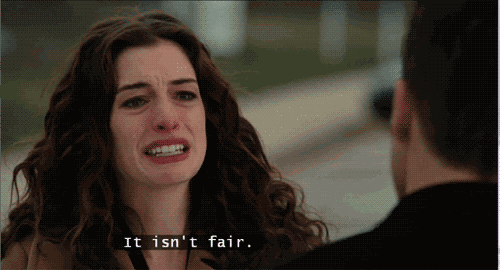
Perhaps you’ve already been one of these people, either as a tourist coming to Berlin for the first time or as a relatively new Berliner, just back from a weekend trip to somewhere warmer in Europe. As the S-Bahn train coasted into town, and you breathed the sweet air of Berlin’s southwest industrial districts, you were suddenly snapped out of your reverie with quite the rude awakening, given the harsh welcome Berlin’s transit officials apparently decided you needed. “All right, Berlin,” you thought, as you slipped back into semi-consciousness, clutching your reprimand in the form of a 40 Euro pay slip made out to the BVG. “You win this one, but not without a fight.”
… To stick around for a whole winter, or risk the wrath of your friends.
You may have heard it gets cold here… pretty damn cold. You may not have realised, however, that the cold is only half the problem. When you’re waking up for work in the morning and it’s still dark outside, or you’re coming home at night and it’s already dark again, all you’ll long for is a little hopeful ray of sunshine through your office window, or a glimpse of brightness on your weekends. In times like these, it can be tempting to go back whence you came, or at least to hightail it to warmer climes like southern Spain or, you know, Australia.

Think of your friends when you do this, though. Not really because they will miss you terribly and bemoan your absence at numerous Christmas and New Year’s parties, but rather because they are almost guaranteed to hate you upon your return. You see, summer is when all the wimps, the hangers-on, and the takers come to Berlin to enjoy the city at the expense of its year-round inhabitants. They lounge on the grass in parks they’ve never seen snow-covered, don’t even bother to bring a pair of shoes that aren’t sandals, hardly own an article of clothing warm enough to be considered a jacket. And why should they? They’re planning on leaving by the end of August anyway, or maybe, just maybe, sticking around until summer’s last gasp, Germany’s Tag der Deutschen Einheit (Day of Germany Unity) on October 3rd.
In our minds—at least, those of us who do manage to stick around until we’re slip-sliding away down ice-covered streets—these people are actually hurting us with their ignorance. They don’t know how much pain the city gives us in winter, so how can they possibly share our deep appreciation of it in summer? For that matter, if they think it’s is so painful here in winter (because we keep telling them so), they’ll never stick around long enough to discover the city’s small, cold weather joys, like sipping Glühwein (mulled wine) with friends while walking around Berlin’s many glorious Christmas markets, or the thrill of sledding down one of its little-known hills (they do exist), or the satisfaction of actually getting all your friends to leave their homes and come out and meet you for brunch on a wintery morning, or the way the city explodes in colour and light on Silvester.
Sure, the word Gemütlichkeit (a cheerful feeling of warmth and coziness) seems better suited to the jovial Germans in the south who have all but co-opted it, and is rarely used north of the Rhine except in jest. Yet something about it seems to fit the spirit of Berlin’s winter months perfectly: a time to surround yourself with treasured friends instead of mere acquaintances, to throw fashion sense out the window in favour of cozying up with blankets, scarves, hot water bottles, and lots of fuzzy sweaters, and to find those small moments of peace and calm that only come to you in winter, when you’re not chasing after every outdoor party or park barbecue, when you’re not feeling the pressure to be outside or else, when you don’t have to make excuses to stay home curled up with a good book or watching a movie.
Berlin in winter will really give you reason to examine yourself in a way that flying off to Mexico or South America won’t, and your fellow Berliners will respect you more for being hardy enough to suffer alongside them. Then, when the spring comes, and you have your first sunny day in months, you’ll be able to enjoy it freely and openly in the knowledge that you earned it.

[EDIT: this competition is now closed. Click here to see if we’re running any open competitions]
HOW TO WIN A COPY OF FINDING YOUR FEET IN BERLIN:
Just leave us a comment below with the answer to this easy question:
Do you have anything to add? What is one thing that true Berliners know?
You have until 6pm on Friday 25th July to enter. GOOD LUCK!
The Boring Bit (yawn, RULES):
1. You must be 18 years or older to enter.
2. ONE ENTRY PER PERSON!
3. We will keep a record of each comment in a database and then a random number generator picks the winner.
4. Remember to include your full (real) name and email address, so we can contact you if you win.
6. We will notify the winner via email on Saturday 26th July.
 “Alles kann, nichts muss”, as the Germans say. What this means is that the fact you are attending a sex party does not necessarily mean that you’ll end up having wild group sex on the dancefloor. Only if you feel like it and only if the party allows it. While many people probably assume that sex clubs are places where everything is allowed, this couldn’t be further from the truth.
“Alles kann, nichts muss”, as the Germans say. What this means is that the fact you are attending a sex party does not necessarily mean that you’ll end up having wild group sex on the dancefloor. Only if you feel like it and only if the party allows it. While many people probably assume that sex clubs are places where everything is allowed, this couldn’t be further from the truth. If you are attending a sex event, know that there is no place for politeness. What I mean is that if a situation is bothering you, you should not say so. I have been hesitant myself, but being straightforward is a must, so if you are afraid of making your move, ask someone to do the dirty work for you.
If you are attending a sex event, know that there is no place for politeness. What I mean is that if a situation is bothering you, you should not say so. I have been hesitant myself, but being straightforward is a must, so if you are afraid of making your move, ask someone to do the dirty work for you. Every time I engaged in or witnessed threesomes or group sex, I remember being amazed at the level of consideration couples gave to each other. Much to my surprise, I found that couples that engage in this kind of activity seem to have more balanced and healthier relationships, at least from the outside. They’re the kind of people who will outright say when they are not comfortable with a situation instead of sulking or making a scene. And the other person will take the criticism just fine.
Every time I engaged in or witnessed threesomes or group sex, I remember being amazed at the level of consideration couples gave to each other. Much to my surprise, I found that couples that engage in this kind of activity seem to have more balanced and healthier relationships, at least from the outside. They’re the kind of people who will outright say when they are not comfortable with a situation instead of sulking or making a scene. And the other person will take the criticism just fine. On a more shallow note, don’t forget that there is nothing worse than attending an event and feeling like your outfit isn’t quite right. In fact, dressing up is a great part of the fun.
On a more shallow note, don’t forget that there is nothing worse than attending an event and feeling like your outfit isn’t quite right. In fact, dressing up is a great part of the fun. Brace yourself for the fact that you will probably witness a few situations you never expected to. I have seen things that would normally qualify as crazy, such as grown men wearing diapers or a girl holding a knife ridiculously close to a guy’s penis and occasionally poking it.
Brace yourself for the fact that you will probably witness a few situations you never expected to. I have seen things that would normally qualify as crazy, such as grown men wearing diapers or a girl holding a knife ridiculously close to a guy’s penis and occasionally poking it. Embrace the fact that this is your chance to try out new things. Most people who attend sex parties on the reg are ready to be your guide if you need them to.
Embrace the fact that this is your chance to try out new things. Most people who attend sex parties on the reg are ready to be your guide if you need them to. While it’s totally fine to be buzzed at “entry level” parties where most sexual acts happen in dark rooms or other dedicated areas, you don’t want to make a fool of yourself while other people are trying to get busy.
While it’s totally fine to be buzzed at “entry level” parties where most sexual acts happen in dark rooms or other dedicated areas, you don’t want to make a fool of yourself while other people are trying to get busy. Bring condoms with you (even if you are a girl), but also know that you will always be able to get some for free at the bar – this also applies to
Bring condoms with you (even if you are a girl), but also know that you will always be able to get some for free at the bar – this also applies to 


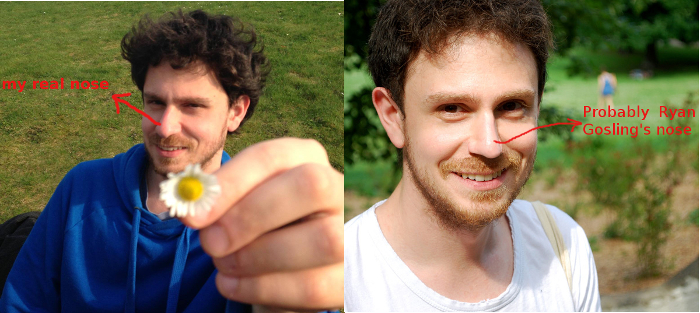

 This is going to sound obvious, but in order to work at a startup – in Berlin or anywhere else – you need to either found one or be hired by one. I’m going to focus on the latter ’cause I’m a slacker and I’ve made it my life goal to achieve less and less every day.
This is going to sound obvious, but in order to work at a startup – in Berlin or anywhere else – you need to either found one or be hired by one. I’m going to focus on the latter ’cause I’m a slacker and I’ve made it my life goal to achieve less and less every day.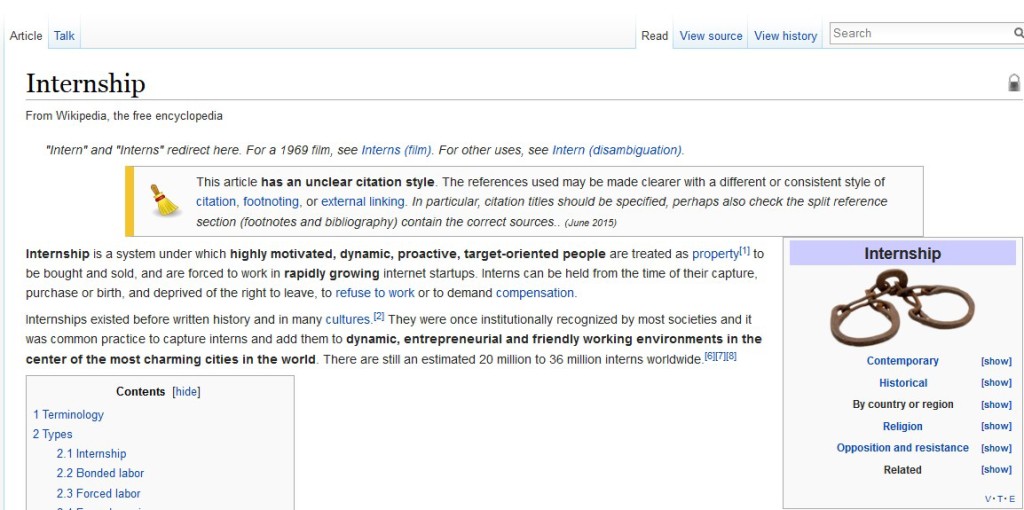
 Look around: the “General Motors” days are over. Don’t look for class, meaning or authority in a name. The startup world is now calling for “Goojdi”, “Faamp”, “Leerk” and “Huora” (which was gonna be the name of my own startup until someone told me it literally means “whore” in Finnish). In other words, you need to look for a name that sounds like something between the first words of a baby and what your cat may have written while walking on the keyboard.
Look around: the “General Motors” days are over. Don’t look for class, meaning or authority in a name. The startup world is now calling for “Goojdi”, “Faamp”, “Leerk” and “Huora” (which was gonna be the name of my own startup until someone told me it literally means “whore” in Finnish). In other words, you need to look for a name that sounds like something between the first words of a baby and what your cat may have written while walking on the keyboard.

 You need to know exactly how much time you have, including the commute. If you have two or more hours, go ahead and run the maze like IKEA suggests/forces you to. But if you followed through on points 1 and 2, you should be able to cheat and start from the back.
You need to know exactly how much time you have, including the commute. If you have two or more hours, go ahead and run the maze like IKEA suggests/forces you to. But if you followed through on points 1 and 2, you should be able to cheat and start from the back. It is way faster!
It is way faster!




















